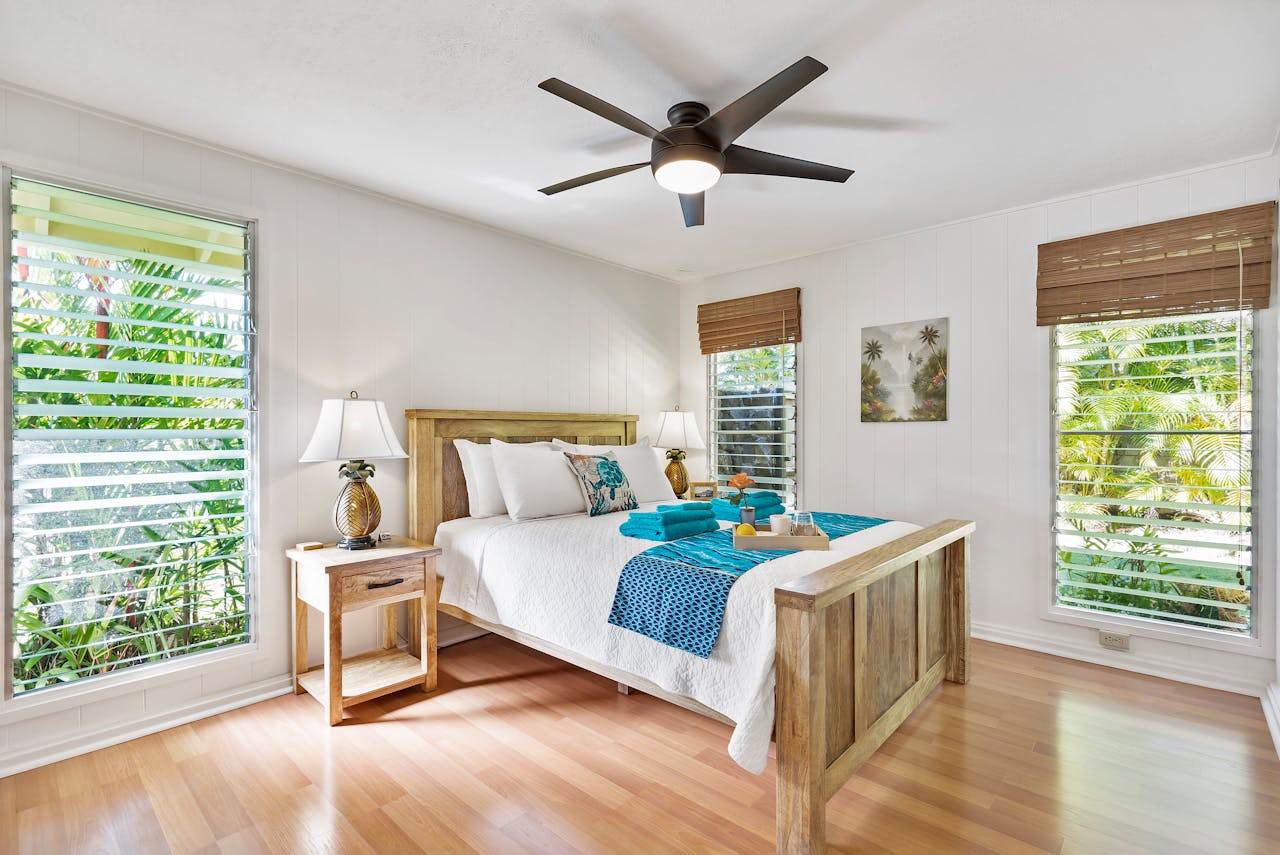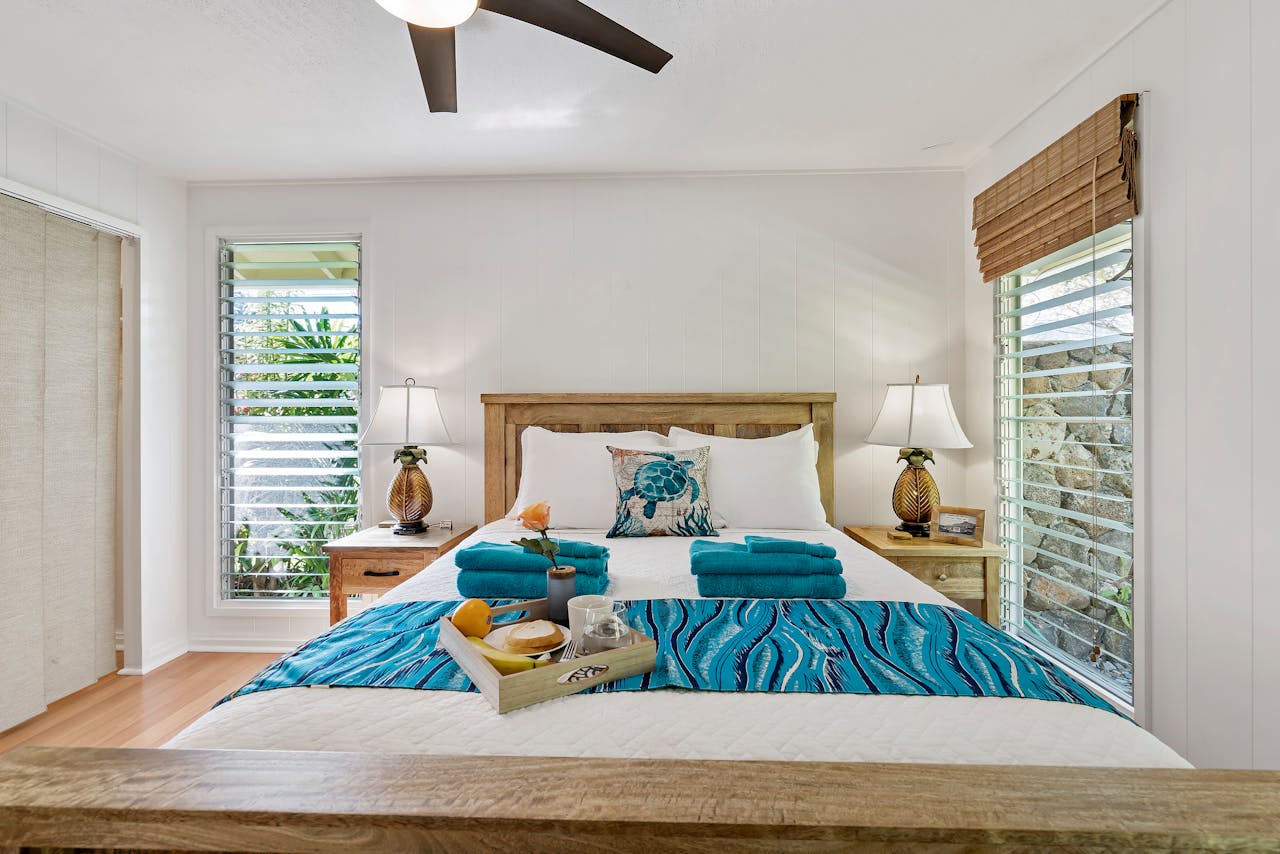
Window Parts, Materials & Components
Jalousie Windows: Pros, Cons, and Considerations for Your Home
Are you planning to upgrade some of your windows? Are you tired of the traditional casement or hung windows? Have you stumbled upon jalousie windows and want to discover if they're really worth it?
Keep reading to find out!
Key Takeaways
- Jalousie windows feature adjustable horizontal slats. They provide maximum airflow, especially when it rains.
- Jalousie windows are budget-friendly, easy to maintain, aesthetically pleasing, and excellent for natural ventilation.
- Jalousie windows work well in warm climates. They are not suitable for homes in regions like Toronto because they let cold air in during the winter and can lead to higher energy bills.
What Are Jalousie Windows?

Jalousie windows, also known as louvered windows, consist of parallel glass or wooden slats set in a frame. The adjustable slats can be tilted open outward in unison using a special mechanism, usually a crank mechanism. This allows you to control both airflow and natural light. Moreover, thanks to their unique style, you can leave jalousie windows open when it rains, as the slats' angle will keep water out.
Jalousie window frames are typically made from aluminum, vinyl, or occasionally wood. The glass slats can be clear, frosted, tinted, or even textured for light control and privacy.
Historically, jalousie windows were installed in warm and humid climates before air conditioning became common, so people could easily ventilate their homes.
Today, homeowners still appreciate jalousie windows, specifically for their retro appearance, but they do not suit every home. Let's first discuss their benefits, and then we'll outline their drawbacks to help you make the right decision!
Benefits of Installing Jalousie Windows
Here are the main benefits of jalousie windows that can justify their installation in your home:
- Jalousie windows provide excellent airflow, especially when it rains. And better airflow can also translate into lower energy bills (for example, keeping them open at night can reduce air conditioning needs during the summer).
- Since jalousie windows allow for better airflow, they can also contribute to a healthier indoor environment.
- Modern jalousie windows are quite easy to maintain and repair. For example, broken or cracked slats can be replaced easily: you can replace just the broken pane, not the entire window unit.
- Jalousie windows may eliminate the need for window blinds if they feature tinted glass, for example.
- Jalousie windows have a unique appearance that pairs well with homes featuring a mid-century modern or tropical architecture.
Are Jalousie Windows Really Worth It?
The truth is that if you live in a region like Toronto, jalousie windows are a big NO, except if you want to install them in the garage or in a sunroom or enclosed porch. Why? Because Toronto homes, considering the region's harsh climate, need energy-efficient windows with tight seals and insulating gas.
But let's take things step by step. Here are the main drawbacks of jalousie windows and why you should think twice before installing them if you live in a region with cold winters:
- Jalousie windows are your worst enemy during those cold Canadian winters. When closed, the glass panes do not interlock tightly, so drafts and leaks are a given. Even though modern units do feature improved insulation, they are still not efficient enough for Canadian winters. Because of this, you'll have to spend more on heating and cooling costs to maintain a comfortable indoor temperature.
- Security is another concern with jalousie windows. Because of their construction, intruders can easily remove slats and enter your home. If this is a concern, you can install security screens or bars, though.
- Even though jalousie windows are pretty easy to maintain, misaligned slats are a common issue and can cause cold drafts during the winter. Plus, since each slat needs to be cleaned individually, this can be time-consuming, albeit easy.
- Jalousie windows are much more likely to allow pests inside than a standard casement or awning window. So, say hello to stink bugs, ants, and boxelder bugs, which are very common in Toronto.
- The metal parts that make up the windows' moving mechanism are prone to corrosion, especially in humid environments. Because of this, cranks can get damaged easily, so you may have to replace them quite often.
- Even though aesthetically pleasing, jalousie windows do not typically come in unique shapes, just the standard square or rectangular shape.
Cost of Jalousie Windows
Jalousie windows cost between $180 and $400, plus installation, which can cost around $150-$300 per window. However, the final price varies depending on the materials you choose, the window size, and installation requirements. For instance, if the windows are being installed on higher floors, special equipment may be required, further increasing the cost.
Don't forget to consider local building permits (if they are needed), which range from $50 to $200.
Keep in mind that while jalousie windows may have a lower initial cost compared to casement windows or picture windows, their poor insulation can result in higher utility bills over time because of ineffective sealing.
Jalousie Windows vs Other Window Types
If we compare jalousie windows to other window types, jalousie windows lose the battle in terms of insulation against any other windows, including double-hung windows or sliding windows, which aren't as energy-efficient as casement or awning windows. Let's compare them all to understand the main differences.
Where Can You Install Jalousie Windows?

Because jalousie windows excel at ventilation benefits and have poor energy efficiency, they are better suited for tropical and subtropical regions. They're perfect for letting hot air escape and allowing fresh air inside, reducing the need for air conditioners.
However, if you live in a region with cold winters, you can also install jalousie windows, just not in living areas like bedrooms or kitchens. They can be installed in:
- Sunrooms
- Screened porches
- Patios
- Light houses
- Garages
- Sheds
- Basement stairwells and other transitional spaces
Modern Upgrades: Energy Efficiency and Security
If you do not live in a tropical climate but still want to install a jalousie window in your bedroom, for example, you can ask the window manufacturer of your choice whether they can provide any modern energy-efficient options for better insulation.
Some manufacturers now use Low-E coatings to reduce heat transfer, keeping cold air out in the winter and minimizing solar heat gain in the summer. You can also choose more efficient window frames and equip your window with insulating window treatments to enhance its insulating capabilities.
To mitigate security risks, modern jalousie windows may include tempered or laminated glass, reinforced cranks, and specialty screens that resist tampering.
These innovations don’t make jalousie windows as efficient as casement or awning windows, but they do make them a better choice for most homeowners who want to maximize airflow while still addressing energy loss and safety concerns.
Maintenance of Jalousie Windows
We've mentioned earlier that jalousie windows are quite easy to maintain, but they do require regular maintenance. Because of their design with parallel slats, jalousie windows collect dirt, dust, and salt (in coastal areas) easily, so you need to wipe down the individual slats regularly.
Furthermore, the crank mechanism should be lubricated once or twice a year to prevent stiffness or corrosion, especially in humid or coastal environments. And don't forget to inspect the metal arms and seals periodically, because worn parts can reduce the window’s ability to close tightly. This, in turn, can let cold air or pests inside.
If a slat breaks, it’s easy to replace just the damaged slat, so you don't have to worry about that.
If the slats are wooden, you'll have to care for them more often and more carefully, as wood is prone to water damage, mold, and pest infestations.
Looking for High-Quality Windows Designed for the Ontario Climate? Contact Magic!
So, to install jalousie windows or not to install jalousie windows? That's the question...
If you're unsure whether jalousie windows are the best for your home, book a consultation with Magic! Let us take this burden off your shoulders!
We provide windows designed specifically for the climate in Ontario. This means that they offer better ventilation, answer all your security concerns, ensure aesthetic appeal, prevent water leakage at all times, and guarantee energy efficiency year-round!
Frequently Asked Questions
Are jalousie windows still made?
Yes, jalousie windows are still manufactured, though they are less common today because of energy efficiency and security concerns. Modern jalousie windows are often used in tropical climates or for improved ventilation, as well as in regions with colder winters, installed in garages or transitional spaces.
What are the disadvantages of jalousie windows?
Disadvantages of jalousie windows include poor insulation, which can lead to heat loss or gain, and vulnerability to leaks during heavy rain. They are also not the most secure option compared to standard windows because the glass slats can be easily broken.
What is the difference between a louver window and a jalousie window?
The difference between a louver window and a jalousie window is that a jalousie window has horizontal glass slats that pivot open and close simultaneously thanks to a crank, while a louver window may have fixed slats made of glass, wood, or metal. However, the terms jalousie windows and louvered windows are often used interchangeably.
How do jalousie windows operate?
Jalousie windows operate by using a hand crank or lever to simultaneously adjust the angle of the slats, allowing for controlled airflow and light while providing privacy.
What are the benefits of installing jalousie windows?
Installing jalousie windows offers excellent ventilation, easy maintenance, and a unique aesthetic, making them especially effective in warm climates and a charming addition to various architectural styles.